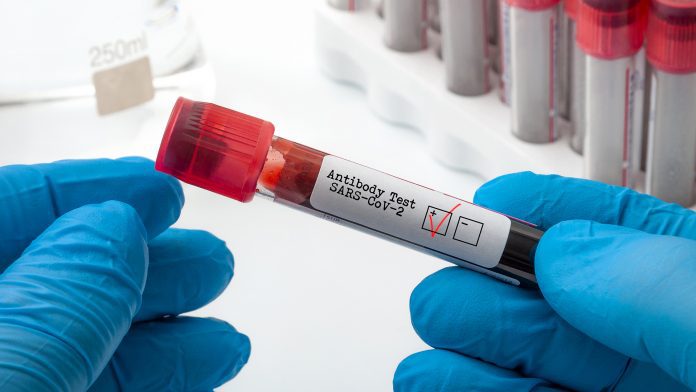
A study conducted in Sweden has elucidated that although COVID-19 antibodies are reduced in the airways following SARS-CoV-2 infection, two vaccine doses increase these antibody levels strongly.
An investigation led by experts at the Karolinska Institutet has identified a significant response in COVID-19 antibodies in the airways, following SARS-CoV-2 infection, for double vaccinated people. The research indicates that receiving a second dose of the COVID-19 vaccine after recovering from the disease may help to protect against reinfection and prevent transmission.
The research findings are published in the journal JCI Insight.
Anna Smed-Sörensen, a docent and research group leader at the Department of Medicine, Solna, Karolinska Institutet, said: “What makes the study unique is that we have looked at samples from both blood and airways, which has given us new knowledge of the local immune response where the virus infects. Since it is more difficult to sample the airways, we know much less about antibody levels there than in the blood.”
Analysing COVID-19 antibodies
To conduct their study, the team analysed how COVID-19 antibodies varied in people who had mild to severe COVID-19, recruiting 147 patients between March and May 2020, and following them for eight months after infection. In 20 individuals, the researchers examined antibody levels after vaccination with the AstraZeneca, Pfizer-BioNTech, or Moderna Vaccine, comparing the results with a control group who had not previously had COVID-19.
The results signified that people who experienced the most severe COVID-19 infection had higher levels of COVID-19 antibodies upon recovery compared to individuals with mild disease. The antibodies in the blood remained at measurable levels for at least eight months, whereas those in the airways were short-lived and diminished after only three months.
“The positive news is that the antibodies quickly returned after vaccination in those who previously had COVID-19, not only in the blood but also in the airways,” said Dr Smed-Sörensen. “We found that the antibody levels in the airways after two doses of vaccine were often even higher than they were during the course of the disease. People who had not had COVID-19 before vaccination had much lower or undetectable levels.”
Impacts of two doses
The second dose of the vaccine did not have as strong an effect on COVID-19 antibodies in the blood. This correlates to previous studies where a strong antibody response after the first vaccine dose was demonstrated in the blood of individuals who had COVID-19, whereas there was only a slight increase after the second.
Karin Loré, a professor at the Department of Medicine, Solna, Karolinska Institutet, said: “Our results demonstrate that to only study blood does not reflect the antibody levels in the respiratory tract, which likely play a major part in neutralising the virus locally. Completing the vaccination with a second dose may therefore be important for achieving optimal immune responses and reducing the spread of infection between individuals.”
Currently, it is still unknown what levels of COVID-19 antibodies are required to protect against infection and whether a rapid drop in antibody levels in the airways leads to reinfection. The team is now working to examine samples from additional longitudinal time points to investigate the inflammatory environment in the respiratory tract during COVID-19 infection, recovery, and after infection.
























